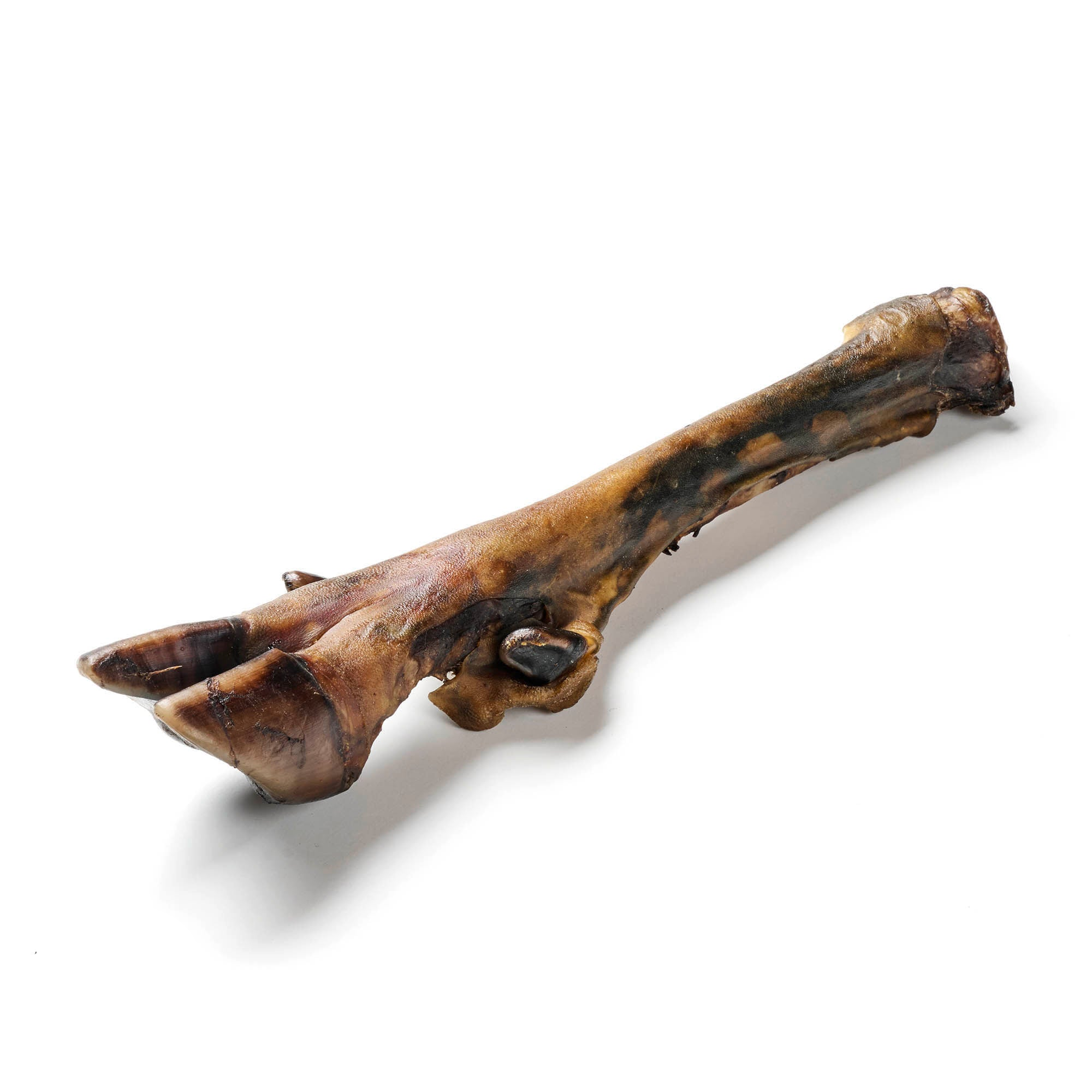
The importance of early socialization in puppies
Share
A puppy not only brings liveliness and joy into the house, but also requires a lot of attention and care. Especially in the first few weeks of life, it is important to gently accustom the little four-legged friend to his new surroundings and to help him gain positive experiences. The experiences and encounters in this early phase of life have a lasting impact on the puppy and significantly influence his future behavior and adaptability.
Content: The importance of early socialization in puppies
- What is early socialization?
- The formative phases in the life of a puppy
- Why is early socialization so important?
- How can early socialization be best supported?
- Common mistakes in early socialization and how to avoid them
- Conclusion
Early socialization begins immediately after birth and lasts until about 16 weeks of life. During this time, the puppy's brain is particularly receptive to new impressions and experiences. He learns how to react to people, other dogs and different environments. This phase is therefore invaluable in laying the foundation for a healthy and balanced dog life.
Delicious dog snacks for pure enjoyment are available from us!
What is early socialization?
Early socialization is the process by which a puppy experiences important social and environmental stimuli in the first weeks of life and learns how to deal with them. This phase begins immediately after birth and lasts until about 16 weeks of life. During this time, the puppy's brain is particularly receptive to new impressions and experiences. The puppy learns how to react to people, other dogs and different environments.
The first weeks of a puppy's life are of fundamental importance for its later development. During this time, the foundation is laid for balanced and social behavior. Targeted socialization experiences can prevent potential behavioral problems in adulthood. It is therefore important that puppies gain a variety of positive experiences during this phase.
The formative phases in the life of a puppy
A puppy 's development can be divided into several phases, each offering its own special challenges and learning opportunities.
Neonatal phase (0-2 weeks)
The first two weeks of a puppy's life are marked by fundamental physical and sensory development. During this phase, puppies are still heavily dependent on their mother. Their eyes and ears are still closed, and they perceive the world primarily through their sense of smell. Although they cannot yet see or hear much, they are already laying the foundation for future social bonds by perceiving the smell and warmth of their mother and siblings.
Transition phase (2-4 weeks)
An exciting time begins for the puppy between the second and fourth week. The eyes and ears open and the first wobbly steps are taken. Now is the time when the puppy begins to actively explore its environment. The first social interactions with its brothers and sisters can be observed. These early contacts are important in laying the foundations for later social behavior. This shows how crucial positive first experiences are.
Socialization phase (4-12 weeks)
The socialization phase is the most important time in early socialization. The puppy is now ready to gain a variety of new experiences. Contact with people, other dogs and different environments is especially important now. Every new experience helps the puppy to become a confident and well-adjusted adult dog. It is important to make these experiences positive and not to overwhelm the puppy.
Youth development phase (12-16 weeks)
In the last weeks of early socialization, what has been learned previously is further consolidated. Ideally, the puppy now also learns basic commands and simple rules. This phase is crucial for strengthening the bond between human and dog. Through consistent and loving training, the puppy is prepared to move safely and confidently in its environment. Initial visits to puppy school can be very helpful here.
Why is early socialization so important?
Early socialization has a significant impact on the behavioral development and mental health of a dog. A well-socialized puppy will grow into a stable and balanced adult who is able to handle different situations confidently.
However, a lack of experience or negative experiences during this important phase can lead to behavioral problems such as being afraid of hands , which are often difficult to correct. A well-socialized dog is not only happier, but also more confident in its environment.
A dog that has undergone extensive socialization in the first weeks of life will be better able to cope with a variety of situations. It will adapt more easily to new people, animals and environments and will be less prone to fear and aggression. Socialization promotes the puppy's self-confidence and helps it to become a balanced and contented dog.
Negative experiences or a lack of socialization, on the other hand, can lead to serious behavioral problems. Dogs that have not been sufficiently socialized during this phase often show fear, aggression or other undesirable behaviors. These problems are difficult and costly to correct later. It is therefore important to ensure positive and comprehensive socialization from an early stage.
Delicious chews for your faithful companion now available!
How can early socialization be best supported?
Supporting early socialization requires patience, consistency, and positive reinforcement. It is important to gradually introduce the puppy to new stimuli. Positive experiences with different people, animals, and environments will build the puppy's confidence.
The use of rewards and praise is particularly effective here. Regular short training sessions and positive encounters help the puppy to develop healthy self-confidence. Visits to puppy school also offer structured socialization opportunities.
Positive experiences and rewards
Positive reinforcement is the key to successful socialization. Each new experience should be accompanied by praise and rewards so that the puppy develops positive associations. Treats, petting and verbal praise are effective ways to show the puppy that he is behaving correctly. It is important to remain calm and patient and not to overwhelm the puppy.
Our training snacks as an ideal reward
Our special training snacks are particularly suitable for positive reinforcement. These small, soft and tasty treats are perfect for training with your dog. They are easy to portion and dogs love to accept them as a reward. They are also free from additives and sugar, making them a healthy option for dog training .
Our training snacks are available in different varieties to offer variety and diversity:
- Goat Training Snacks : Ideal for dogs with allergies or intolerances. Goat meat is a hypoallergenic protein source that is often well tolerated and rarely causes allergic reactions. It is lean and contains many essential nutrients that are important for the dog's health.
- Kangaroo Training Snacks : An exotic protein source that is particularly well tolerated. Kangaroo is low in fat and contains a high concentration of Conjugated Linoleic Acid (CLA), known for its positive health effects. It is also a rare meat source that is often recommended for dogs with food intolerances.
- Ostrich Training Treats : A rare source of protein that can help prevent allergies. Ostrich is lean and rich in protein as well as iron. It is an excellent choice for dogs with sensitive stomachs or allergies as it is easily digestible and rarely causes allergic reactions.
- Duck Training Snacks : Popular with dogs and rich in nutrients, duck is a good source of high-quality protein and essential fatty acids. It also contains important vitamins and minerals that contribute to the dog's overall health and well-being.
- Salmon Training Treats : Rich in Omega-3 fatty acids, good for skin and coat. Salmon is known for its high content of Omega-3 fatty acids, which have anti-inflammatory properties and promote skin and coat health. Salmon also contains important vitamins and minerals that strengthen the immune system.
- Mix Training Snacks : Offers a selection of different types for variety in training. This mix contains the best of all the meats mentioned above, ensuring a varied diet. The variety of flavors and nutrients ensures that your dog receives all the necessary nutrients while keeping training exciting.
These and many other snacks are not only healthy, but also an excellent way to train your dog. This makes learning fun and your puppy develops into a well-socialized and obedient dog.
Introduction to various environmental stimuli
The puppy should be gradually accustomed to different environmental stimuli. This includes not only people and other animals, but also different noises, places and situations. Walks in different environments, visits to friends and trips into the city are good ways to familiarize the puppy with new stimuli. It is important to always pay attention to the puppy's signals and not to overwhelm him.
Structured socialization programs and puppy schools
Puppy schools and structured socialization programs offer an excellent opportunity to socialize the puppy under the guidance of experienced trainers. In such courses, the puppy learns how to interact with other dogs and people in a controlled environment. The trainers can give valuable tips and help to optimize the puppy's socialization. These courses are also a good opportunity to train the first basic commands and strengthen the bond between dog and owner.
Tips for dog owners: patience, consistency and positive reinforcement
Patience and consistency are essential for the successful socialization of a puppy. It is important to conduct short training sessions regularly and create positive experiences. The puppy should never be punished, but always given positive reinforcement. Each training session should end on a positive note to motivate the puppy and build its confidence.
Common mistakes in early socialization and how to avoid them
There are some common mistakes to avoid when socializing a puppy. It is important to pace the new experiences at a pace that the puppy can handle. Negative or traumatic experiences should be avoided as they can lead to fear and insecurity. An inconsistent approach can confuse the puppy and reduce the effectiveness of socialization.
Overwhelming the puppy
A common mistake in early socialization is overtaxing the puppy. New stimuli and situations should be introduced gradually and at a pace that the puppy can tolerate. If the puppy shows fear or seems unsure, it is important to give it time to get used to the new situation. Too many new impressions at once can overwhelm and stress the puppy.
Inadequate or negative experiences
Negative experiences can have a lasting impact on the puppy's socialization. It is important to ensure that the puppy has as many positive experiences as possible during this phase. Horrible or traumatic experiences should be avoided at all costs. If the puppy does have a negative experience, it is important to rebuild it afterwards and give it security.
Lack of continuity and consistency
An inconsistent approach to socialization can confuse the puppy and reduce the effectiveness of socialization. It is important to train regularly and consistently, always using positive reinforcement. The puppy should learn that good behavior is rewarded and that he can rely on his caregiver. Consistency in training creates trust and security.
Conclusion
Early socialization is one of the most important phases in a dog's life. It lays the foundation for a happy and balanced life. With conscious and positive support, every puppy can grow into a self-confident and socially competent dog. Investing in early socialization pays off in the long term and leads to a strong bond between dog and owner.
A well-socialized dog is not only easier to handle, but also more confident in its environment. The positive experiences that a puppy has in the first weeks of life have a lasting impact on its behavior and help it to become a balanced and contented companion. It is therefore important to take early socialization seriously and to support the puppy as best as possible during this phase.
Reward your dog with our high-quality chew products!















